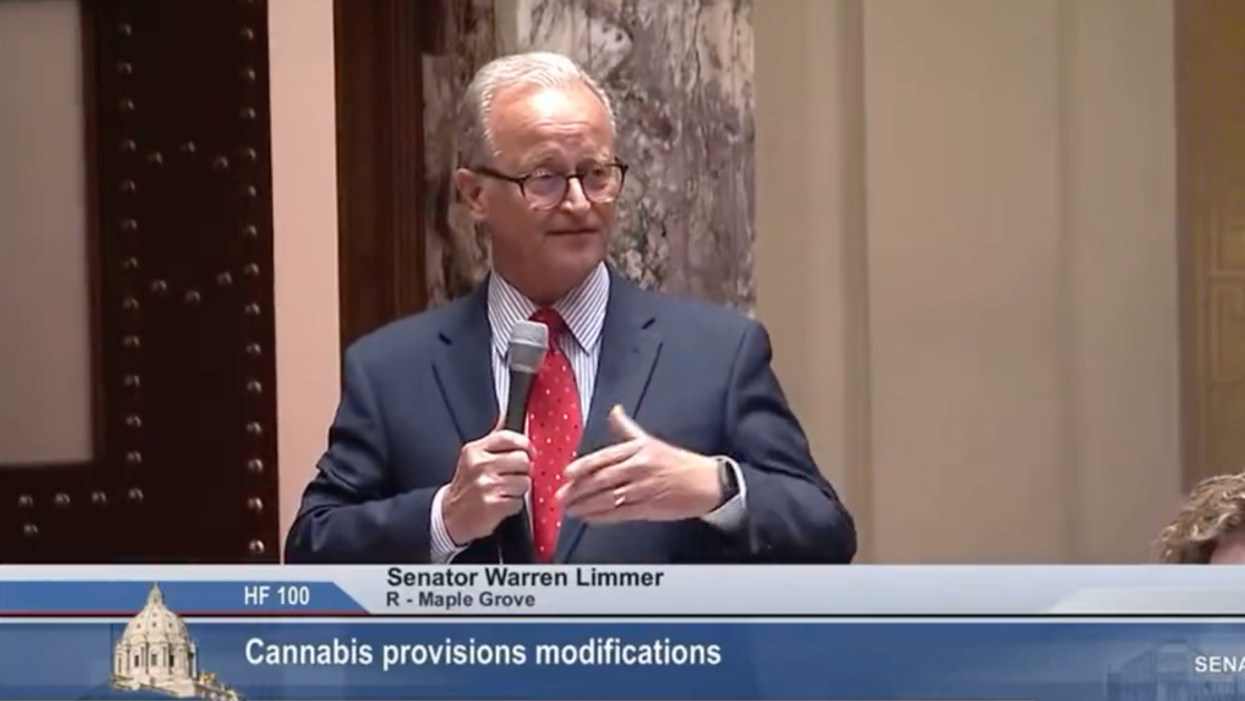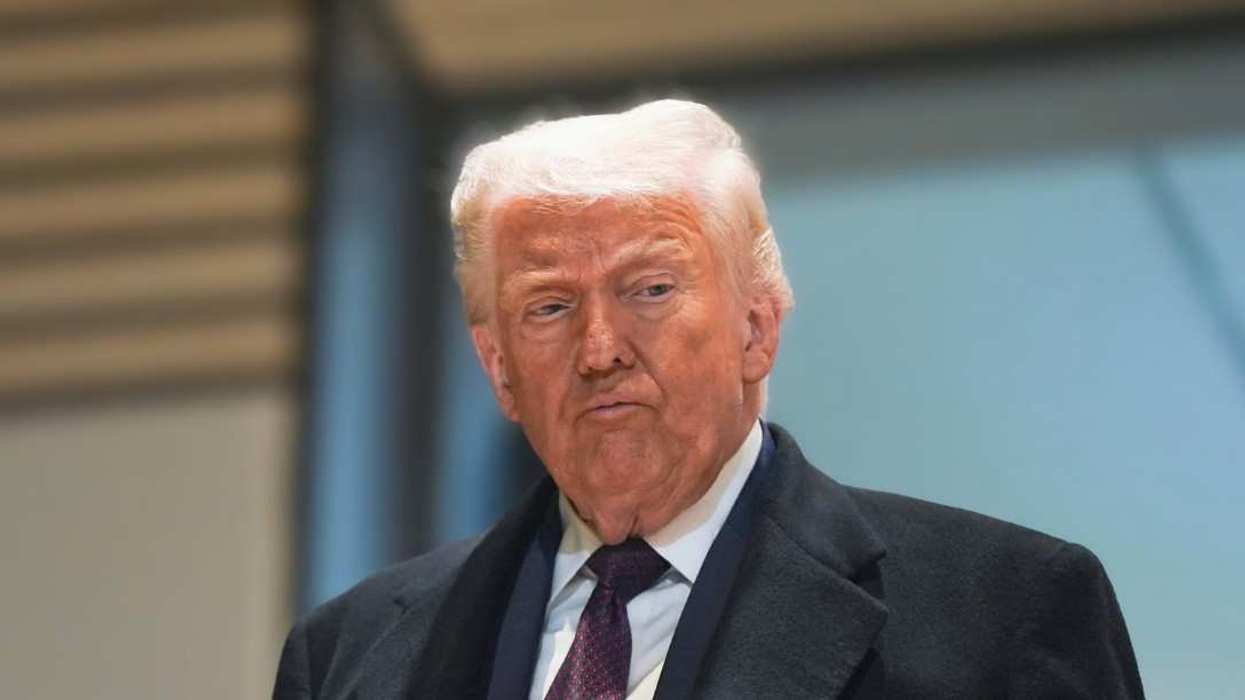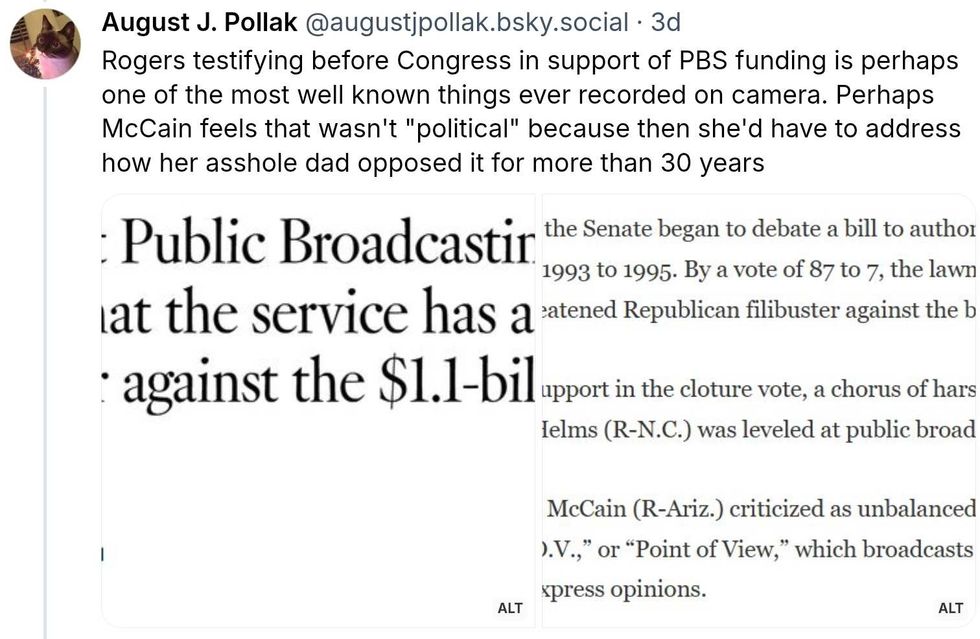Minnesota Republican State Senator Warren Limmer was widely mocked after he tried to claim two ounces of marijuana is the equivalent of "three joints" as the state debated legalizing the drug for recreational use.
The state Senate voted on the issue, with Republicans rejecting the proposed legislation that would have allowed residents aged 21 and older to purchase up to two ounces of cannabis flower, eight grams of concentrate, or 800 milligrams of edible products. Adults would also be permitted to grow up to eight cannabis plants at home.
The proposed bills, which had previously passed through the state House, are now set to go before a conference committee for further discussion.
Limmer was particularly vocal in his opposition to the legislation, taking issue with several of its key provisions. Speaking on Friday, Limmer claimed that "two ounces, just two ounces is equivalent to three joints."
You can hear what he said in the video below.
\u201c\u201cJust two ounces is equivalent to three joints\u201d \u2014 the Republican arguments against legal cannabis are going well. #mnleg\u201d— Aaron Rupar (@Aaron Rupar) 1682713432
Limmer said:
"Now I’ve seen some of the videos of DEA raids, some of these plants are 8 and 10 feet tall, you can have eight of ’em, you can have a privacy fence made of these products in your backyard.”
“Two ounces, just two ounces is equivalent to three joints.”
Limmer's claim has been called into question, with experts noting that the amount of marijuana he claimed would be contained in a single joint is significantly higher than the average amount found in University of Pennsylvania research—just .32 grams per joint.
Many have mocked the lawmaker's claim as a result.
\u201c@0xWizardOf0z @atrupar If they only knew how many joints 2 ounces can make \ud83d\ude02\u2026. More like 56 joints and that\u2019s rolling up a G - A - Joint \ud83d\ude02\u201d— Aaron Rupar (@Aaron Rupar) 1682713432
\u201c@atrupar Are they trying to bring back the prohibition?? \ud83d\ude06\u201d— Aaron Rupar (@Aaron Rupar) 1682713432
\u201c@atrupar Jesus.. can you imagine the size of those three joints?\n\nWhew! \ud83d\ude02\ud83e\udd23\ud83d\ude02\ud83e\udd23\ud83d\ude02\ud83e\udd23\u201d— Aaron Rupar (@Aaron Rupar) 1682713432
\u201c@atrupar Dude did his research.\u201d— Aaron Rupar (@Aaron Rupar) 1682713432
\u201c@atrupar Those are some huge doobies but I would try it for science.\u201d— Aaron Rupar (@Aaron Rupar) 1682713432
\u201c@atrupar *Driving up to the dispensary*\n\n\u201cI\u2019ll take a 1 oz joint please.\u201d\ud83d\ude36\u200d\ud83c\udf2b\ufe0f\u201d— Aaron Rupar (@Aaron Rupar) 1682713432
\u201c@atrupar We need a joint committee to investigate this\u201d— Aaron Rupar (@Aaron Rupar) 1682713432
\u201c@atrupar Sheeeesh my man rollin some fatties with that much\u201d— Aaron Rupar (@Aaron Rupar) 1682713432
Republicans have been staunch opponents of marijuana legalization efforts in Minnesota, citing concerns over public safety and the potential for increased drug use.
However, supporters of the legislation argue that legalization would generate significant tax revenue for the state and reduce the burden on law enforcement officials.








 @iamdaydreamin_/Instagram
@iamdaydreamin_/Instagram @loversfriendschi/Instagram
@loversfriendschi/Instagram @peachyyyangieee/Instagram
@peachyyyangieee/Instagram @y2kbug.zip/Instagram
@y2kbug.zip/Instagram Allie/TikTok
Allie/TikTok EclipseHope13 - /
EclipseHope13 - / Karina Skellington/TikTok
Karina Skellington/TikTok Nadia Spitaels/TikTok
Nadia Spitaels/TikTok Kkkkkakes/Instagram
Kkkkkakes/Instagram mister_bones__/TikTok
mister_bones__/TikTok





 @uaschyperpolyglot; @xopherx/Bluesky
@uaschyperpolyglot; @xopherx/Bluesky @augustjpollak/Bluesky
@augustjpollak/Bluesky @augustjpollak/Bluesky
@augustjpollak/Bluesky @augustjpollak/Bluesky
@augustjpollak/Bluesky @owill8s/Bluesky
@owill8s/Bluesky @sethcotlar/Bluesky
@sethcotlar/Bluesky @zoesamuel/Bluesky
@zoesamuel/Bluesky  @clggmf/Bluesky
@clggmf/Bluesky


 Friends Hug GIF by MOODMAN
Friends Hug GIF by MOODMAN  Body Wiggle GIF
Body Wiggle GIF  Aging Jamie Lee Curtis GIF
Aging Jamie Lee Curtis GIF  Serious
Serious